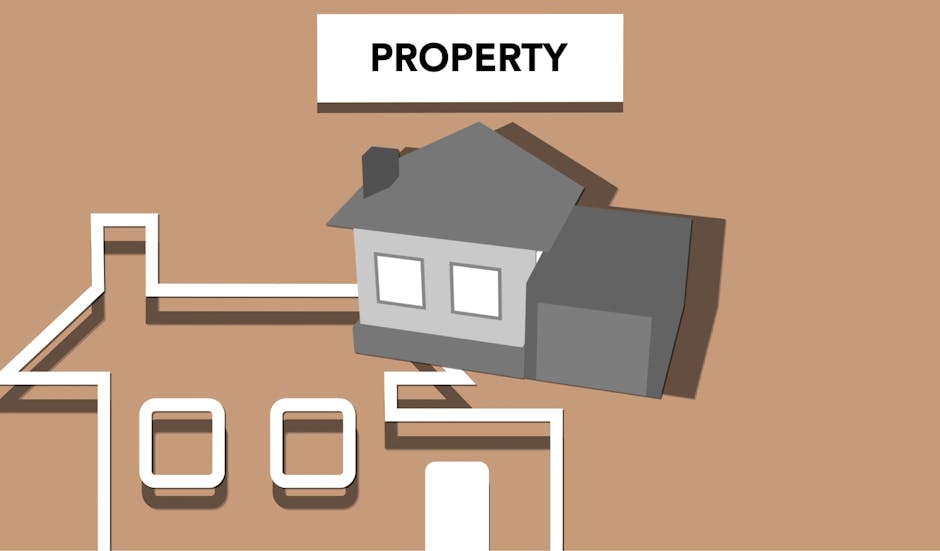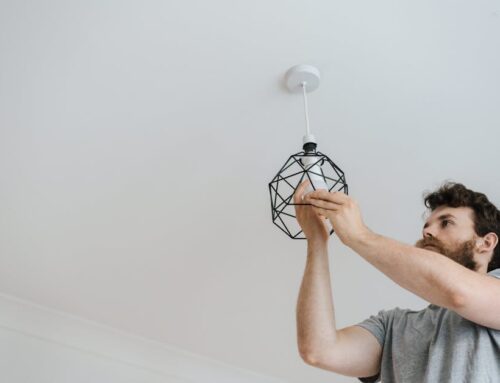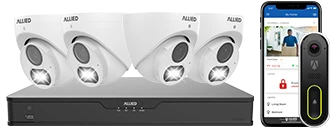- Introduction to Home Automation and Property Value
- Overview of the San Antonio Real Estate Market
- Types of Home Automation Technologies
- Impact of Home Automation on Property Value
- Case Studies: San Antonio Homes with Smart Technologies
- Costs and ROI of Implementing Home Automation
- Future Trends in Home Automation and Property Value in San Antonio
- Conclusion and Recommendations
Introduction to Home Automation and Property Value
Home automation, often referred to as smart home technology, encompasses a range of devices and systems that allow homeowners to control various aspects of their home environment remotely or automatically. These technologies can include everything from lighting and climate control to security systems and appliances.
The primary appeal of home automation lies in its ability to enhance convenience, improve energy efficiency, and bolster security. Homeowners can manage their home’s functions using smartphones, tablets, or voice commands through virtual assistants like Amazon’s Alexa or Google Home. The ability to control home systems remotely means that tasks such as adjusting the thermostat, locking doors, or turning off lights can be done from anywhere, adding a significant layer of convenience.
Various studies and reports suggest that home automation can contribute to an increase in property value. According to the National Association of Realtors (NAR), homebuyers are showing increased interest in smart home features. In a 2019 report from Coldwell Banker, it was found that 77% of millennial homebuyers want smart thermostats and 75% are looking for smart security systems. These preferences can make properties configured with smart technology more attractive on the market.
Moreover, energy efficiency is a critical component of home automation that resonates well with both environmentally conscious buyers and those looking to reduce utility costs. For instance, smart thermostats like the Nest Learning Thermostat can help homeowners save on heating and cooling costs by learning their usage patterns and adjusting temperatures accordingly. According to a study by the Energy Star program, these kinds of thermostats can save users up to 20% on their heating and cooling bills.
San Antonio, being part of Texas, is known for its hot summers and mild winters, making energy-efficient home technologies particularly appealing. Smart irrigation systems can also be a valuable addition for properties with significant landscaping, helping to conserve water and lower utility bills. As a city prone to periods of drought, San Antonio residents can benefit from such technologies not just financially but also environmentally.
Security is another significant aspect contributing to the rising popularity of home automation. Features like smart locks, video doorbells, and comprehensive security systems ensure enhanced safety for homeowners. The Insurance Information Institute has noted that having robust security systems can even lower homeowner insurance premiums, providing cost savings in addition to increased home value.
In summary, home automation offers a blend of convenience, cost savings, and improved security that appeals to a broad range of homebuyers. Understanding these benefits is the first step in appreciating how such technologies can elevate property values, especially in dynamic and growing real estate markets like San Antonio.
Overview of the San Antonio Real Estate Market
San Antonio’s real estate market has shown significant growth over the past few years. According to data from the San Antonio Board of Realtors, the median home price in the area has risen consistently, reflecting the city’s attractiveness to both local buyers and out-of-towners relocating to Texas. This upward trend is a positive indicator for homeowners looking to invest in their properties, including those considering home automation.
Economic stability and job growth are key factors driving San Antonio’s housing market. The city benefits from a diverse economy, with strong military, healthcare, and tech sectors. Companies such as USAA, Rackspace, and multiple military installations contribute to a robust job market. As a result, demand for housing remains high, leading to more competitive pricing.
Neighborhoods like Alamo Heights, Stone Oak, and the Dominion are particularly sought after, often featuring higher property values and a greater propensity for incorporating advanced home technologies. Homes in these areas are typically prime candidates for home automation upgrades due to the higher likelihood of return on investment.
San Antonio’s population has been steadily increasing, with the latest estimates from the U.S. Census Bureau showing a growth rate that eclipses the national average. This population growth puts additional pressure on the housing market, creating a seller’s market where properties tend to sell quickly and often above asking price. Such a competitive environment underscores the importance of any edge a seller can gain, including the installation of home automation systems.
Furthermore, buyer demographics in San Antonio include a significant portion of younger, tech-savvy individuals. Millennials and Generation Z buyers are entering the market with a preference for homes equipped with modern conveniences, including smart home technologies. These tech-forward buyers are often willing to pay a premium for properties offering integrated automation features, making such investments particularly attractive for homeowners looking to enhance their property’s appeal and value.
In addition to market demand, local policies also support home value growth. San Antonio has initiated various development projects and incentives aimed at improving infrastructure and expanding residential areas. These improvements not only make the city more livable but also add to the overall attractiveness of its real estate.
Overall, understanding the dynamics of the San Antonio real estate market is crucial for homeowners considering home automation. The market’s growth, buyer preferences, and economic indicators all suggest that investing in smart home technologies can be a strategic move to enhance property value in this competitive and burgeoning city.
Types of Home Automation Technologies
3. Types of Home Automation Technologies
Home automation technologies encompass a wide array of devices and systems designed to enhance the comfort, convenience, and security of a home. Below are some of the key categories:
Smart Lighting
Smart lighting systems allow homeowners to control lighting remotely via smartphones or voice commands. Options like dimming and scheduling can conserve energy and customize ambiances.
Thermostats
Smart thermostats, such as those from Nest or Ecobee, learn user preferences and adjust heating and cooling settings accordingly. They can be controlled remotely and offer energy-saving benefits.
Security Systems
Advanced security systems include smart locks, cameras, and alarm systems. Features such as remote monitoring, motion detection, and real-time alerts enhance home security.
Home Assistants
Devices like Amazon Echo and Google Home serve as central hubs for controlling other smart devices, providing functionalities such as internet searches, scheduling, and media playback through voice commands.
Entertainment Systems
Smart entertainment systems integrate devices such as televisions, speakers, and gaming consoles. They facilitate seamless media streaming, multi-room audio, and voice-activated controls.
Appliances
Smart appliances include refrigerators, ovens, and washing machines that can be monitored and operated remotely. These appliances often include features designed to improve efficiency and save energy.
Irrigation Systems
Automated irrigation systems use weather data and soil moisture levels to optimize watering schedules, conserving water and maintaining landscape health.
These technologies provide tangible benefits, making homes more attractive to potential buyers and often resulting in increased property values. While the upfront costs for some of these systems can be significant, the long-term savings on utilities and the enhanced quality of life they offer can provide a compelling return on investment.
Impact of Home Automation on Property Value
Research indicates that home automation significantly impacts property value by enhancing the overall appeal and functionality of a property. In San Antonio’s real estate market, advancements in home automation can be an influential factor in differentiating properties and attracting buyers.
Multiple studies underline the correlation between smart home features and increased property values. According to a report by the National Association of Realtors (NAR), homes with smart technology can sell for up to 5% more than homes without such amenities. This surge is partly due to the growing consumer demand for convenience, efficiency, and enhanced security features offered by home automation systems.
Energy Efficiency and Cost Savings
One of the primary ways that home automation boosts property value is through energy efficiency. Smart thermostats, lighting controls, and energy monitoring systems help homeowners reduce their energy consumption, leading to lower utility bills. For example, a smart thermostat can cut heating and cooling bills by up to 12% and 15%, respectively, according to the Environmental Protection Agency (EPA). These cost savings are a compelling selling point for prospective buyers and can justify a higher asking price.
Enhanced Security Features
Security is another critical factor that can elevate property value. Modern home automation systems include smart locks, security cameras, and automated lighting, which provide an added layer of security and peace of mind. According to a survey conducted by Coldwell Banker, 63% of buyers prefer homes with smart security features. The added safety and convenience of these technologies can be a significant attraction for homebuyers in San Antonio, where security is a top concern.
Improved Home Management
Smart home technologies also streamline household management through convenience and connectivity. Devices such as smart refrigerators, voice-activated assistants, and automated home cleaning systems can make daily tasks more manageable and efficient. The ability to control all these devices through a single app or voice command adds a modern, luxurious touch to the home, further appealing to tech-savvy buyers.
Future-Proofing
Investing in home automation not only boosts current property value but also future-proofs homes. As technology continues to evolve, homes equipped with the latest automation systems are better positioned to adapt to new advancements. This foresight can be an attractive feature in a rapidly evolving tech landscape, giving a home a competitive edge in the market.
Supporting Data from San Antonio
A significant portion of homebuyers in San Antonio is showing increased interest in properties with smart home features. Data from Zillow reveals that homes with listings highlighting smart home technologies tend to attract more views and inquiries. Moreover, these homes often sell faster compared to those without such features, emphasizing the impact of home automation on market performance.
In conclusion, incorporating home automation systems can substantially enhance property value by offering energy efficiency, heightened security, streamlined home management, and future-proofing. As the real estate market in San Antonio continues to evolve, homes with advanced automation will likely remain at the forefront, appealing to a broad range of buyers and ensuring a better return on investment.
Case Studies: San Antonio Homes with Smart Technologies
One real-world example of the impact of home automation on property value in San Antonio is showcased by homes listed on various real estate platforms. According to data from Zillow, homes equipped with integrated home automation systems were observed to list at a higher price point compared to those without such technologies.
A report from the National Association of Realtors (NAR) further corroborates this, indicating that homebuyers are increasingly willing to pay more for properties with smart home features like security systems, smart HVAC controls, and automated lighting.
Additionally, a study conducted by Coldwell Banker found that homes with smart technologies not only fetched higher prices but often sold faster compared to traditional homes. This is attributed to the growing consumer preference for convenience, energy efficiency, and enhanced security.
While the specific figures may vary depending on the exact type, quality, and extent of the automation system, the trend is consistently positive. For example:
- Smart Security Systems: Properties featuring advanced security systems like smart cameras, doorbells, and locks see up to a 5% increase in their sale price.
- Energy Management Systems: Homes with smart thermostats, automated lighting, and energy-efficient appliances can command price premiums, driven by their potential for utility savings.
- Whole-Home Automation: Comprehensive systems that integrate multiple smart technologies typically show the highest increase in value, often ranging between 7-13% according to industry reports.
One significant finding from a local real estate survey is that younger buyers, particularly millennials, are a driving force behind this trend. Their preference for tech-savvy, efficient living spaces makes San Antonio homes with advanced automation systems particularly appealing.
In conclusion, the integration of smart home technologies is proving to be a lucrative investment for homeowners in San Antonio, contributing positively to both the speed of sale and the selling price of properties.
Costs and ROI of Implementing Home Automation
When considering the implementation of home automation systems in your property, one critical aspect to examine is the cost and its potential return on investment (ROI). Understanding the financial aspects can help homeowners make informed decisions about integrating smart technologies into their homes.
The cost of home automation systems can vary widely depending on the complexity and range of devices integrated. Basic systems, including smart lighting, thermostats, and security cameras, can cost a few hundred dollars, while more comprehensive systems encompassing advanced security, home theaters, and whole-house audio can run into several thousand dollars. According to a survey conducted by HomeAdvisor, the average cost to automate a home in the United States ranges between $750 and $2,500, although high-end installations can exceed $10,000.
In assessing the ROI, it is important to consider both the monetary and non-monetary benefits that home automation can provide. A study by Coldwell Banker Real Estate found that homes equipped with smart technologies are perceived as more modern and efficient, potentially increasing the sale price by 3% to 5%. Additionally, the National Association of Realtors (NAR) highlights that many prospective buyers are willing to pay a premium for properties with pre-installed smart home systems, viewing them as a valuable and convenient feature.
On the financial side, certain smart devices can contribute to notable savings on utilities. For example, smart thermostats, such as those produced by Nest or Ecobee, can reduce energy bills by learning homeowners’ schedules and optimizing heating and cooling. The U.S. Department of Energy states that programmable thermostats can save around 10% annually on heating and cooling costs. Similarly, smart lighting systems, which utilize LED bulbs and provide dimming options, can significantly lower electricity consumption.
The longevity and adaptability of the systems can also affect the ROI. Many home automation technologies can be easily upgraded or expanded, ensuring they remain relevant and functional long-term. This capability can mitigate the need for costly replacements or extensive renovations, further enhancing ROI.
It’s also important to account for the potential increase in home insurance discounts. Some insurance companies offer reduced premiums for homes with advanced security systems, which can include smart locks, cameras, and burglar alarms. These discounts can range from 5% to 20%, as emphasized by a review conducted by Consumer Reports.
Despite these advantages, homeowners should weigh initial installation costs, potential technical issues, and the necessity of maintenance or updates. Consulting with a professional to design a tailored home automation strategy can help maximize the benefits and ensure that investments align with long-term goals.
In summary, while the upfront costs of home automation can be substantial, the long-term savings on utilities, increased property value, and potential insurance benefits contribute positively to a home’s ROI. Comprehensive
evaluations and smart investments can lead to substantial financial gains and enhanced living experiences.
Future Trends in Home Automation and Property Value in San Antonio
The future of home automation in San Antonio is expected to be shaped by evolving technologies and changing consumer preferences. As the market for smart home devices continues to expand, the influence of these technologies on property values will also rise.
Emerging Technologies in Home Automation
Several emerging technologies are poised to revolutionize home automation:
- 5G Connectivity: The rollout of 5G networks will significantly enhance the speed and efficiency of smart home devices, enabling real-time communication and improved functionality.
- Artificial Intelligence (AI): AI is increasingly being integrated into home automation systems, allowing for more personalized and adaptive home environments. Smart thermostats, lighting, and security systems, powered by AI, learn and adapt to homeowners’ routines and preferences.
- Internet of Things (IoT): The connectivity of household devices through IoT is expected to become more seamless, allowing for better integration and coordination of various smart home gadgets.
- Voice Assistants: Devices like Amazon’s Alexa, Google Assistant, and Apple’s Siri continue to be integrated into more home automation products, simplifying user interaction and control.
Impact on Property Value
As home automation technologies advance, their impact on property value in San Antonio is expected to become more pronounced. According to a report by Coldwell Banker, homes equipped with smart technology can sell faster and at a premium, compared to non-smart homes. The convenience, security, and energy efficiency offered by such upgrades are highly valued by potential buyers.
| Technology | Estimated Value Increase |
|---|---|
| Smart Security Systems | Up to 5% |
| Energy-Efficient Systems | Up to 10% |
| Home Entertainment Systems | Up to 3% |
Consumer Trends in San Antonio
San Antonio homeowners are becoming increasingly tech-savvy and looking to integrate more advanced automation solutions into their homes. The rising consumer demand is driven by factors such as:
- Energy Efficiency: Homeowners are keen on reducing energy consumption to lower utility bills.
- Security Concerns: Enhanced security features afford homeowners peace of mind.
- Convenience: The ability to control home systems remotely offers significant convenience.
- Resale Value: Smart homes are becoming a major selling point in the real estate market.
Challenges and Considerations
Despite the promising future, several challenges remain in the widespread adoption of home automation:
- Cost: The initial investment for smart home devices can be substantial, potentially limiting accessibility for some homeowners.
- Privacy and Security: Concerns over data privacy and the potential for hacking continue to be critical issues.
- Compatibility: Ensuring compatibility between different devices and platforms remains a technical hurdle.
- User Education: Homeowners need to be educated on how to effectively use and maintain their smart home systems.
As these challenges are addressed and new technologies emerge, the future of home automation in San Antonio looks promising, with significant potential to enhance property values and improve the quality of living for residents.
Conclusion and Recommendations
In conclusion, home automation can significantly enhance property value in San Antonio, making it a viable investment for homeowners. The integration of smart technologies not only appeals to tech-savvy buyers but also offers practical benefits such as improved security, energy efficiency, and convenience, which are highly sought after i
n the current market.
As the real estate landscape in San Antonio continues to evolve, it’s crucial for homeowners to stay ahead of trends and consider the long-term implications of their investments. By adopting home automation technologies, property owners can ensure their homes remain competitive and attractive to prospective buyers.
Recommendations
- Assess Needs: Homeowners should evaluate their specific needs and determine which automation features will provide the most value.
- Research Reliable Brands: Investing in reputable, high-quality smart home technologies can ensure longevity and functionality, which can further enhance property value.
- Plan for Comprehensive Integration: Ensuring that different home automation systems are compatible and can be integrated seamlessly can provide a cohesive experience for future buyers.
- Consult with Professionals: Engaging with real estate and technology professionals can provide insights and recommendations tailored to the local market, ensuring that investments in home automation are strategic and effective.
- Stay Updated: Keeping abreast of technological advancements and market trends can help homeowners make informed decisions and continually enhance their properties.
Ultimately, by thoughtfully implementing home automation, homeowners in San Antonio can enjoy the benefits of modern living while also potentially increasing their property’s market value.













